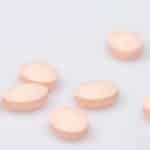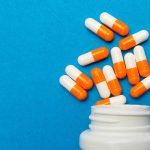Vyvanse, the brand name for lisdexamfetamine dimesylate, is a stimulant drug most commonly used to treat attention-deficit hyperactivity disorder (ADHD). Vyvanse is also a schedule II controlled substance with a high potential for abuse and dependence.
As a schedule II substance, Vyvanse can be both habit-forming and addictive.
Frequent abuse of Vyvanse can lead to the development of a substance use disorder (SUD) and increase the risk of overdose. If you or a loved one struggles with substance abuse issues, professional treatment can help you recover.
Effects Of Vyvanse
Vyvanse is a prescription drug and stimulant used for the treatment of ADHD and binge-eating disorder. Although some people may abuse Vyvanse to treat obesity, the Food and Drug Administration (FDA) does not recommend it as a weight loss supplement.
Prescription stimulant medications also include:
- Adderall (amphetamine/dextroamphetamine)
- Ritalin (methylphenidate)
- Focalin (dexmethylphenidate)
- Dexedrine (dextroamphetamine)
ADHD is a mental health disorder that can cause impulsivity, decreased focus, and hyperactivity. Vyvanse increases levels of the neurotransmitters dopamine and norepinephrine in the central nervous system. Balancing these chemicals in the brain can increase focus, attention, and energy.
Euphoria & Other Side Effects
Vyvanse can cause a rush of euphoria, which can lead to stimulant abuse. Prescription stimulant drugs can also cause heart problems and other adverse effects if abused.
Serious side-effects of Vyvanse may include:
- high blood pressure
- dry mouth
- irregular heartbeat
- psychosis
- mood swings
- increased heart rate
- loss of appetite
Serotonin syndrome is a potentially life-threatening side-effect that can also occur if you combine Vyvanse with other drugs that cause an increase in serotonin, like antidepressants.
Serotonin is a brain chemical involved with mood regulation and memory and high doses can affect mood, sleep, and memory.
Vyvanse Abuse
As a stimulant drug, Vyvanse can be abused if you take the medication in a way other than how it is prescribed. Taking Vyvanse to get high increases the risk of causing changes in the brain that lead to addiction.
Vyvanse abuse may include:
- snorting or injecting the drug
- taking higher amounts than prescribed
- taking Vyvanse for its pleasurable effects
- mixing Vyvanse with other drugs
In addition, teens and college students may abuse Vyvanse to stay awake for extended periods of time. Although it may seem harmless to occasionally use Adderall, it can cause serious side-effects, especially if you are not diagnosed with ADHD.
Vyvanse Overdose
Vyvanse abuse can cause a life-threatening overdose, including severe cardiovascular problems, seizures, and sudden death if left untreated.
Signs of stimulant overdose include:
- tremors
- increased breathing
- hallucinations
- aggression
- irregular heart rate
- nausea
- diarrhea
- stomach pain
- seizures
- coma
Signs Of Vyvanse Addiction
Long-term substance abuse can cause chemical changes in the brain that lead to a stimulant dependence. Once you become dependent, it can be difficult to stop without experiencing withdrawal symptoms.
Vyvanse withdrawal symptoms may include:
- fatigue
- anxiety
- depression
- increased appetite
- difficulty sleeping
- cravings
Dependence is a warning sign of drug addiction and may require a medical detox to recover. A professional detox provides 24/7 supervision from trained healthcare professionals. If you experience severe withdrawal symptoms, you may receive medications.
Additional signs of addiction can include:
- prioritizing drug use over other responsibilities or interests
- increased tolerance
- decreased interest in socializing with loved ones
- difficulty giving up Vyvanse, despite a desire to stop
- continued use, despite harmful effects to health
- using or obtaining Vyvanse in high-risk situations
Vyvanse Addiction Treatment
Substance abuse issues may develop into a stimulant addiction, which can interfere with work, school, and family. If you are concerned about yourself or a loved one, an addiction treatment center can help.
Depending on your individual needs, treatment options may include:
- inpatient treatment, which involves a structured and intensive daily schedule
- outpatient treatment, which involves weekly scheduled treatment sessions of varying intensity
- behavioral therapy, to help you identify unhealthy behaviors and learn healthy coping skills
- support groups, including 12-step programs like Narcotics Anonymous (NA)
Northeast Addictions Treatment Center offers a variety of evidence-based, outpatient treatment options for drug addiction and co-occurring mental health disorders. To learn more about our treatment programs, please contact us today.
Sources
- Food And Drug Administration (FDA) — Vyvanse
- National Institute On Drug Abuse (NIDA) — Prescription Stimulants DrugFacts
- Pharmacy and Therapeutics — Lisdexamfetamine Dimesylate (Vyvanse), A Prodrug Stimulant For Attention-Deficit/Hyperactivity Disorder
- Translational Pediatrics — Pharmacologic Management Of Attention Deficit Hyperactivity Disorder In Children And Adolescents: A Review For Practitioners
Written by
Northeast Addition Editorial Team
©2024 Northeast Addition Center | All Rights Reserved
This page does not provide medical advice.



